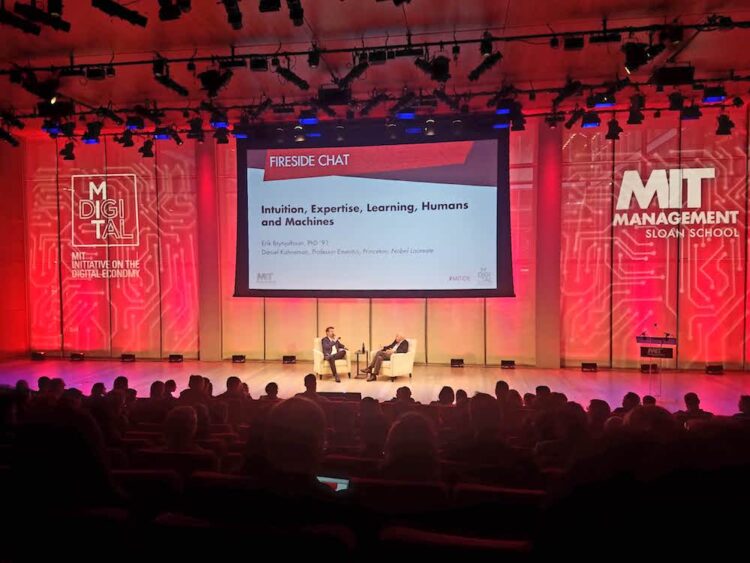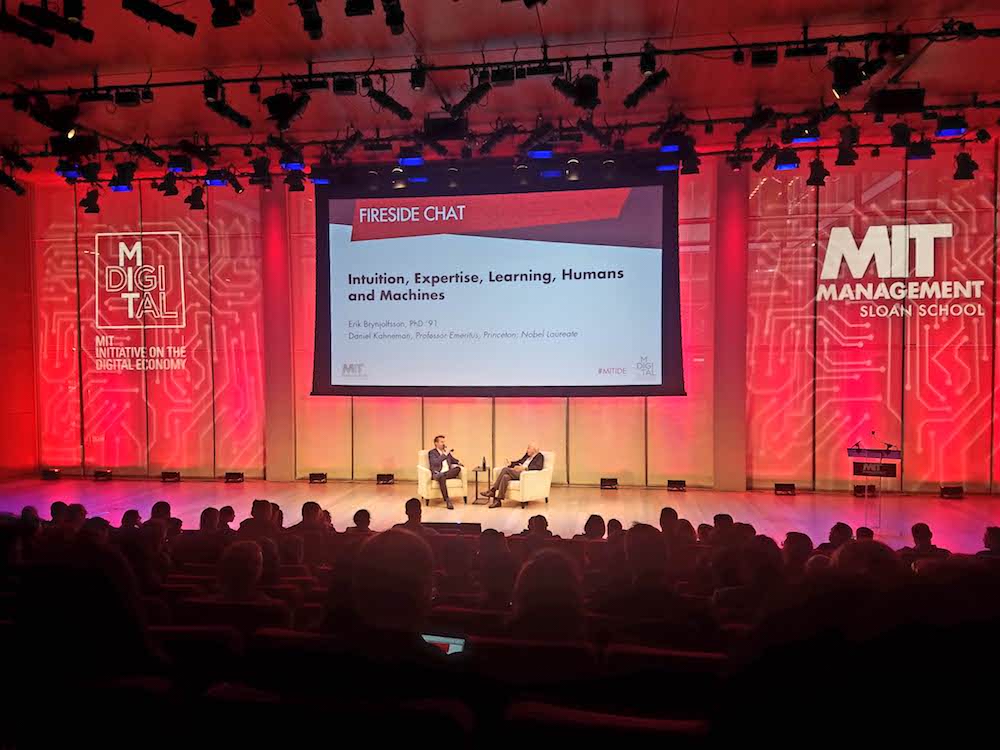MIT Sloan School of Management hosted a conference on The Future Of Work: Capital Markets, Digital Assets, and The Disruption Of Labor. At the conference, the legendary, Nobel Laureate Daniel Kahneman educated audience on how machines and algorithms have the potential to dramatically alter the workplace. Kahneman had roughly thirty minutes to discuss his recent research and views on the benefits of algorithms. In this short amount of time, Kahneman was able to display his genius and enlighten the audience as to the shortcomings of humans and why machines may be better.
Kahneman shared his results from a consulting job with a leading insurance company to explain how noise & bias can lead to error in human decision-making, which can have significant financial consequences for companies. Kahneman described noise as inconsistent and arbitrary decision making. He used the analogy of arrows that hit different sections of a target based upon arbitrary factors (like where the shooters is standing or his hand position). Whereas, bias is defined as a consistent, formulaic error (ex: all of the arrows are flying above the target).
Kahneman gave six cases to fifty underwriters at a leading insurance company. The underwriters were to assess these cases as if they were real. Kahneman collected the underwriters assessments of each case and the average amount of money they gave out. Many people believe that in a well-run organization there should be about 10-15% variability among each employee regarding the amount of money they would give to a case. However, Kahneman’s findings were striking. When he computed the results, he discovered there was a 56% variability among the underwriters and claim adjusters regarding the amount of money they gave out in each case.
These results are startling and force the question to be posed: “Do you need those people or can an algorithm do better?” Kahneman explained that an algorithm does not have noise. You can repeatedly present the same problem to an algorithm and it will give back the same answer while humans do not.
Kahneman suggests combining human and machines provided that the machine has the last word. Humans are not good at integrating information, but Kahneman proposes that the algorithm should have the option for humans to override it, if the human finds out crucial information the machine does not know. Kahneman commented that for a job like underwriters, it was not surprising that a simple algorithm performs better.
Kahneman is also the author of the best-seller, Thinking, Fast and Slow, which has sold six million copies worldwide. Thinking, Fast and Slow is a highly acclaimed book suitable for those who wish to learn more about behavior science and how human heuristic thinking can lead to bias and error in judgement and decision-making.



